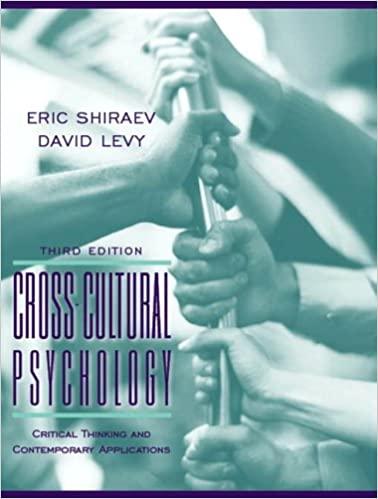Task D: Debriefing statement. For these two people, you need to write up the debriefing statement that participants will read after they complete the study.
Task D: Debriefing statement. For these two people, you need to write up the debriefing statement that participants will read after they complete the study. Here, tell them about the study (what you did, how you did it, why you did it) and explain your hypotheses and your predictions. Make sure to thank them for participating! To the study below:
If the "primacy effect" is chosen as the second independent variable, I expect that participants in the positive condition will recall more positive words than those in the negative condition, and vice versa. Additionally, I predict that the Self-Rating participants will be more heavily influenced by the primacy effect than the Friend-Rating participants, and will better recall words based on the valence of the primacy effect.
The psychological concepts of primacy and recency effects explain why entries at the beginning and end of a list are each more easily remembered than those in the center. This is thought to be caused by the way the brain stores and retrieves memories. In particular, it is believed that the primacy effect results from the fact that the first items on a list are encoded with more effort and attention, leading to improved recall. The last items on a list are still in the short-term memory when they are tested, leading to improved recall in the case of the recency effect, on the other hand. The primacy effect may be an intriguing topic to investigate in the context of my study to see whether people's recollection of social media postings is influenced by the valence (positive or negative) of the words used at the start and conclusion of each post. In particular, I anticipate that persons in the positive condition (where the post's opening words are positive and its closing words are negative) will remember more positive terms than those in the negative condition (where the first words are negative and the last words are positive).The primacy effect will also have a stronger impact on self-rating participants than friend-rating participants, and they will be better able to recall terms due to the primacy effect's valence.
I would need to create a experiment in which participants are shown social media postings that begin with either positive or negative terms and end with the opposite valence in order to test my hypothesis. In order to determine whether there is a difference in recall between the two circumstances, participants would next need to remember as many words as they could from the post.The primacy effect is an intriguing phenomenon that may be investigated in relation to social media posts to see if it influences recall. It might shed light on how people interpret and retain information from social media and how various post types affect memory.
Step by Step Solution
There are 3 Steps involved in it
Step: 1

See step-by-step solutions with expert insights and AI powered tools for academic success
Step: 2

Step: 3

Ace Your Homework with AI
Get the answers you need in no time with our AI-driven, step-by-step assistance
Get Started


